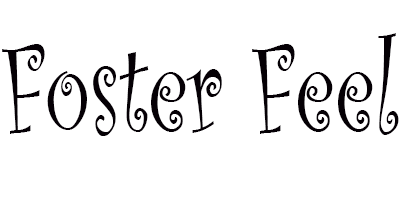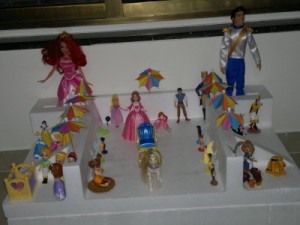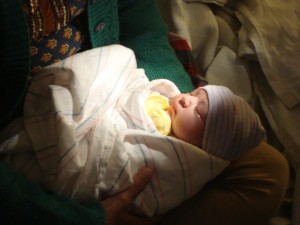“Kids never lie” said my grandparents but is it really true? Kids really don’t lie ever? Then why my kids lie to me?
I remember when she was 2 years old she said “I washed my hands even when she did not.”
When she was 4 years old she said “papa today I rescued mummy from lizard” but the truth was she didn’t see the lizard at all. I saw the lizard in the gallery and I told her to keep the door closed for the time so lizard can’t come inside.
When she was 5 she said “mom my teacher asked me to bring sketch pens at school.” But while questioning I came to know that her teacher didn’t ask sketch pens. She wanted to pack sketch pens for the school.
If “kids never lie” then what are these? Was she really lying all these times or I misunderstood her? Shall I punish her for lying or just ignore it? Many questions were in my mind and I am sure these questions must have challenged your parenting at one place or another.
Well the truth is “kids never lie”. Amuse? Me either when I first time came to know this. When I researched I came to understand that whatever your kid says are not fully lie or better to say those are not the things we consider as a lie.
Here is the other side of those lie:
When my 2 years old daughter told me that she washed her hands without washing her hands, she was afraid of not getting a star. She didn’t understand whether its lie or truth. She knew only one thing that if she will say she didn’t wash her hands then she will not get a star. So technically she wasn’t lying. She was using her brain to simplify the task to get the star!!!
This is the example of kids’ growing brain and as per the experts you should not stop it. Then what? Shall we ignore it and encourage our kids to lie? Of course not, the only thing I should tell her at that time is “it seems you didn’t wash your hands. Mama is not happy with that.”
Focus on the thing your kid didn’t finish as lying concept is far to teach at the age of 2 to 4. Make them understand that if mummy is telling you something you are supposed to do that no matter what and that’s called trust.
When at the age of 4 she told her father “papa today I rescued mummy from lizard” she wasn’t lying either. Yes she didn’t rescue me but she was fantasizing to rescue me. 4 to 6 years kids don’t understand the difference between reality and pretend play. When I told her about the lizard she thought to rescue me and result she said that to her father!!! This means her brain has started thinking about the solutions which is really a great part. This is the way they get self-confidence to accept the risk.
Then what to do for this age? Shall we ignore and focus on the thing only like we did it before? But here we don’t have anything.
Here I should tell her that that’s really good that you wanted me to rescue from the lizard. It was a brave of you. But you thought to do that you didn’t do that so you should say “I thought to rescue mummy but by the time lizard was gone”. When we say we did something without doing it called lying and that’s really bad thing. I am sure you don’t want to do bad thing. So next time say “you wanted to do that but couldn’t”.
Do not scold them to lie as I said it’s not a lie, it is just a pretend assumption.
When at the age of 6 she said “mummy my teacher asked me to bring sketch pens at school” she was lying. She knew that that is a lie so I can say she was lying but at the same time the truth is her mind has started reasoning for the things as well. She thought 1. If she will ask sketch pens for school I will not give her as in schools outside things are not allowed 2. Whenever her teacher asks for the things, I send it. 3. If she will ask the things by the name of her teacher, I may give her. And all these she thought by herself!!! Well whatever she thought wasn’t right but she thought that’s good.
At the age of 6 to 8 we have to go through questioning to get the truth as they know what is lie but not fully. If I could have simply given her sketch pens, I couldn’t have discovered the truth. While questioning I came to know that she wanted to make a card with her friends in break time and that can’t be possible if anyone of them won’t get sketch pens from home. Actually her aim wasn’t wrong, just a way she found for the same was not right. So show them the right way and tell them to stick to the truth. This is the perfect age to teach them the importance of truth (of course without punishment). Punishment and scolding for lying comes for later age.
By the age of 8, kids perfectly understand “what is lie” and “what is truth”. Teach your kid before the age of 10 that “lying is not good thing” and they should not lie to anyone otherwise later it will become habit.
How to teach your kid lying is bad:
- Consider your child’s age: First of all it is very important for you to know what is lie. If your kid says she was locked in the room for 100 minutes that’s not a lie, they don’t have the real concept of time. Combining fairy tales with the real life is not a lie as well as not using the right word is not a lie. For example “once my daughter told me her teacher likes to call her “budhiya” (means an old lady) but the truth was her teacher likes to call her “gudiya” (means a doll)!!! Many times kids can’t find the proper words to describe the things or their feelings so don’t judge them without knowing the full truth.
- Motivate them with the story: Stories and books are easiest way to teach a kid. You can read them the story of “shepherd girl and a lion” or tell them the story of your own. Teach them lying can get the trouble for them. Show them that if they will lie, no one will trust them.
- Get the confidence: Make connection with your kid the way that they can share their heart with you. Give less chance to lie and even if they do, show them the right way and your love too. For example when they lie for grades, they don’t want to disappoint you so technically it is not lie. Support them for that and show them that you love them always no matter what are their grades. Get your kids’ confidence so they can share every right and wrong thing with you.
- Walk your talk: As I always say kids are cute copy cats, don’t forget to watch your steps. Do the things you say and when you cannot, act the way that they don’t get the chance of misconception. For example, once I promised my 5 years old daughter to give her a chocolate on Friday but she got sick on Thursday. Now it was clear that I cannot give her chocolate on Friday but at the same time for her, it was a promise and not keeping my promise means I was lying. There was no way she could understand the reason of not giving her chocolate on Friday. So I gave her a chocolate on Friday and said “as I promised, here is your chocolate but you know we don’t eat chocolates when we are sick. So why don’t you keep it with you for three days and have it on Monday. If you are okay I can keep it for you” and as a result she returned me the chocolate for 3 more days!!! But if I would have not given her the chocolate, she must have fought with me to get the chocolate as for her it was a promise.
- Share your mistakes: Let your kids know everyone makes mistakes and you did too. Share your age appropriate mistakes and lie with them and show them what you have learned from those experiences. Explain them that people make mistakes but that doesn’t mean they should make one more mistake by hiding it or lying about it.





